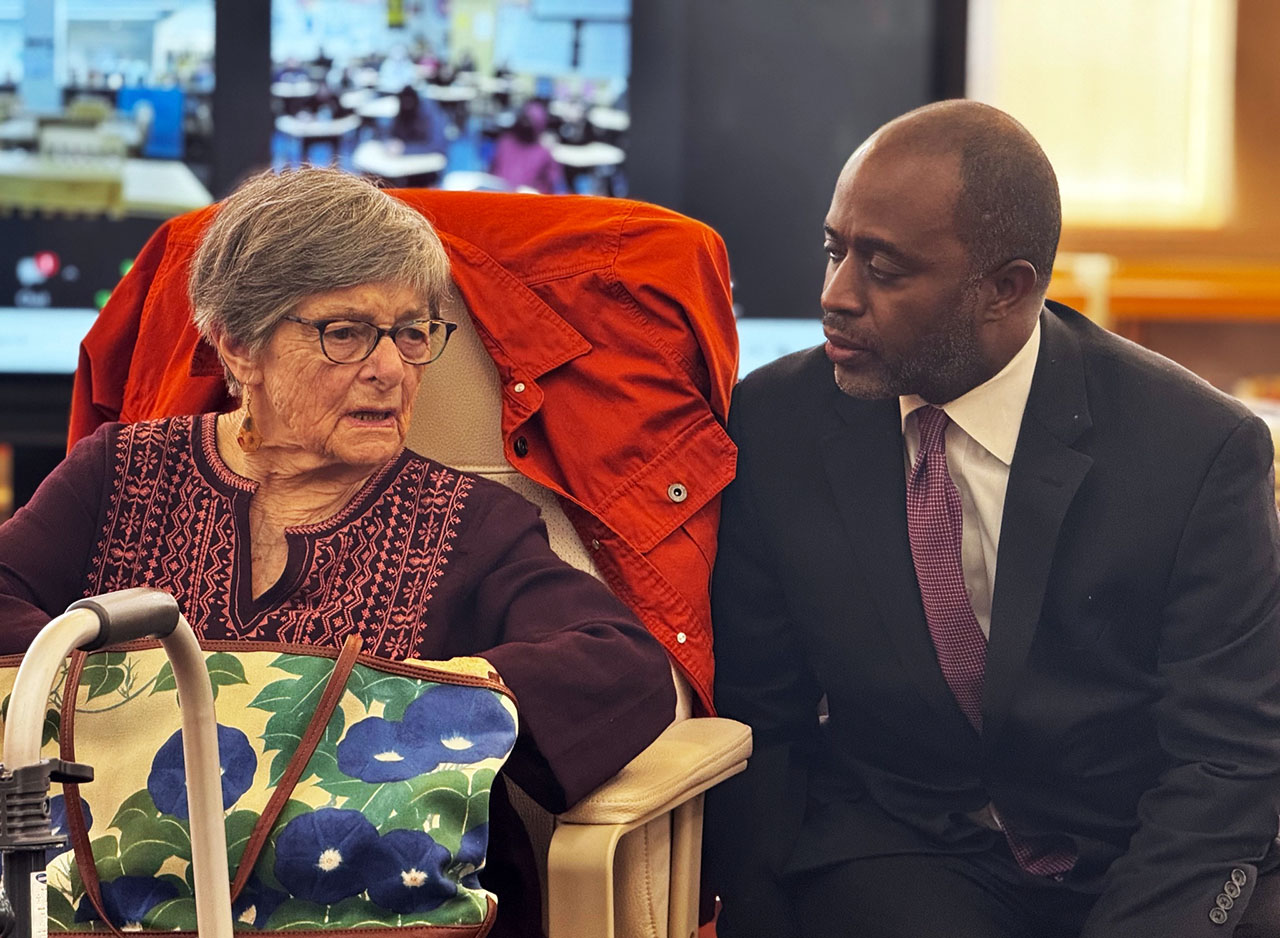Posted on February 16, 2024

More than 100 students in public high schools across West Contra Costa County took part in an inaugural, district-wide educational program last month, hearing powerful testimony from East Bay Holocaust survivor Lisa Brinner.
Now 95, she was only 11 when she was sent out of Austria on a Kindertransport, which saved children from the Holocaust but separated them from their parents. Brinner lived with a foster family in England before moving, at age 15, to San Francisco, where she was reunited with her entire immediate family.
“Of all the Kindertransport people, there were many who never saw their parents again, so I was fortunate,” Brinner said during the Jan. 25 event, held at El Cerrito High School just before International Holocaust Remembrance Day.
Brinner’s appearance marked the launch of an oral history speaker series organized by the California Department of Education (CDE) that will continue at school districts across the state. The series aims to give students a deeper understanding of the Holocaust by allowing them to hear directly from survivors and their family members, Superintendent of Public Instruction Tony Thurmond told J.
“This is a great thing that serves many purposes and promotes awareness of the Holocaust,” Thurmond, who also co-chairs the Governor’s Council on Holocaust and Genocide Education, said in a phone interview. “It’s a great way to address and counter antisemitism. We think it’s an engaging way for students to learn about history.”
The West Contra Costa Unified School District serves nearly 28,000 students in Hercules, Pinole, San Pablo, Richmond and El Cerrito. At El Cerrito High School, where Brinner spoke, student leaders showed up representing the Jewish Student Union, Muslim Student Association and Amnesty International Club, among others.
“We loved that there was a diversity of students in the room,” said Thurmond, who personally picked up Brinner from her home in Albany and drove her to the nearby school.
“This was connecting students with someone who lives right there in their community,” Liz Sanders, director of communications at the CDE, said in an interview.
During the two-hour program, students who were listening to Brinner’s testimony remotely — five high schools in Richmond, San Pablo, Pinole and Hercules — were able to communicate through interactive display boards and webcams. Students asked Brinner about her experience fleeing on the Kindertransport, how she felt being separated from her parents at a young age and what the journey was like, among other questions.
At one point, a teacher asked Brinner her thoughts about the Israeli-Palestinian conflict. In response, Brinner — whose late husband, William Brinner, was a renowned Near East scholar at UC Berkeley — offered a hopeful message that one day there would be peace in the volatile region.
“She gave a beautiful answer about how her life has taught her we can always restart, how we always can have actions that plant for peace, how there’s always an opportunity to begin again,” Sanders said.
The event, which kicked off with a catered breakfast for Brinner, students, faculty and local elected officials, signaled the start of a promising new program at school districts throughout the state, including in small towns where there are no survivors available to give their testimony.
“We are getting lots of interest, especially from rural districts that might not otherwise have the resources or connections to hear directly from a survivor,” Sanders said.
“We’re hopeful that we can do this in other communities across the state,” Thurmond told J. “This was a first try for us.”
To prepare for last month’s event, the CDE partnered with the Jewish Family and Children’s Services Holocaust Center. Anita Friedman, executive director of JFCS and co-chair of the Governor’s Council, and Holocaust Center director Morgan Blum Schneider reviewed the materials to ensure they aligned with best practices for Holocaust education.
The JFCS Holocaust Center has committed itself to strengthening Holocaust learning in classrooms statewide. In 2022, it launched the California Collaborative for Holocaust and Genocide Education.
“We are proud to be able to connect these resources with districts and schools across California,” Sanders said.